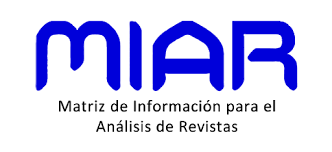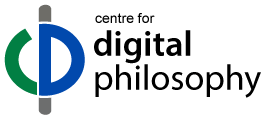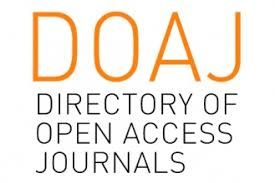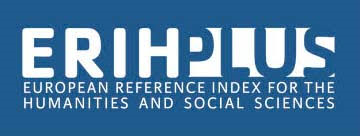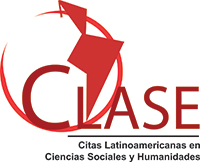Necessidade temporal em Buridan e Jandun
sobre o De Caelo I.12
DOI:
https://doi.org/10.15448/1984-6746.2024.1.45576Palavras-chave:
João Buridan, João de Jandun, Variedades de Necessidade, Modalidades Medievais, De CaeloResumo
O presente artigo investiga a conexão entre modalidade e tempo em dois mestres de artes Parisienses ativos na primeira metade do século 14, João Buridan (c.1290-c.1361) e João de Jandun (c.1286-c.1328). Busca-se elucidar a abordagem de ambos acerca da natureza dessa relação em um conjunto de textos pouco explorados nos debates sobre a interpretação de modalidades medievais, a saber, os comentários ao fim do primeiro livro do De Caelo de Aristóteles. A interpretação da relação entre o ‘necessário’ e o que ‘sempre é’ nesse texto recebera interpretações divergentes sobre a controversa assimilação de necessidade e omnitemporalidade em concepções pré-modernas das modalidades. Por meio da análise do debate em torno das passagens Aristotélicas do De Caelo, posto por ambos os filósofos pertencentes ao milieu da Faculdade de Artes em Paris, o artigo demonstra que tal assimilação não era consensual. Através do contraste entre as análises de Jandun e Buridan, conclui-se que, embora Buridan acomode a necessidade temporal pressuposta no De Caelo enquanto necessidade condicional, ele desenvolve uma crítica da validade geral dos argumentos de Aristóteles no que tange a modalidades absolutas.
Downloads
Referências
ARISTÓTELES. On the Heavens I and II. Edited and Translated by S. Legatt. Warminster: Aris & Phillips, 1995.
ARISTÓTELES. Prior Analytics. Translated with an Introduction and Commentary by Gisela Striker. Oxford-New York: Oxford University Press, 2009.
BURIDAN, João. Tractatus de Consequentiis. Edited by Hubert Hubien. Leuven: Publications Universitaires, 1976.
BURIDAN, João. Questiones longe super librum Perihermeneias. Ed. Ria van der Lecq. Ingenium Publishers, 1983.
BURIDAN, João. Expositio et Questiones in Aristotelis De Caelo. Edited by Benoît Patar. Louvain-Paris: Éditions Peeters, 1996.
BURIDAN, João. Summulae de Dialectica. Translated by Gyula Klima. New Haven: Yale University Press, 2001a.
BURIDAN, João. Summulae: De demonstrationibus. Edited by L.M. De Rijk. Groningen-Haren: Ingenium Publishers, 2001b.
BURIDAN, João. Summulae: de Propositionibus. Introduction, critical edition and indexes by Ria van der Lecq. Brepols, 2005.
BURIDAN, João. Treatise on Consequences. Translated by Stephen Read. New York: Fordham University Press, 2015. DOI: https://doi.org/10.5422/fordham/9780823257188.001.0001
BURIDAN, João. Quaestiones in Priorum Analyticorum Aristotelis. Unpublished edition by Hubert Hubien, s.d.
JANDUN, John. In libros Aristotelis de Coelo et Mundo quae extant questiones subtilissimae. Veneza, 1552.
JANDUN, John. Quaestiones Perspicacissimi Peripatetici Ioannis de Gandavo in duodictum libros Metaphysice. Veneza, 1525.
Literatura Secundária
ALT, Guido. Buridan’s Reinterpretation of Natural Possibility and Necessity. In: HOCHSCHILD, Joshua; WOOD, Adam; NEVITT; Turner; BORBÉLY, Gábor (orgs.), Metaphysics through Semantics. The Philosophical Recovery of the Medieval Mind. Cham: Springer, pp. 237-253, 2023a. DOI: https://doi.org/10.1007/978-3-031-15026-5_14
ALT, Guido. Varieties of Necessity in John Buridan. Logic and Natural Philosophy in the Late Middle Ages. Stockholm: University Press, 2023b.
BROADIE, Sarah. The Possibilities of Being and Not-being in De Caelo 1.11-12. In: BOWEN, Alan; WILDBERG, Christian (orgs.) New Perspectives on Aristotle’s De Caelo, Philosophia Antiqua: A series of studies in ancient philosophy, 117. Leiden, Boston: Brill, pp. 29-50, 2009. DOI: https://doi.org/10.1163/ej.9789004173767.i-326.13
BENET, Jean-Baptiste. Jandun, John of. In: LAGERLUND, Henrik (org.) Encyclopedia of Medieval Philosophy: Philosophy between 500-1500, Second Edition, Springer Reference. Nijmegen: Ingenium Publishers, pp. 978-980, 2020. DOI: https://doi.org/10.1007/978-94-024-1665-7_272
DENYER, Nicholas. Never Will and Cannot. Proceedings of the Aristotelian Society, v. 74, no. 1, Aristotle on Modality, pp. 163–178, 2000. DOI: https://doi.org/10.1111/1467-8349.00068
GASKIN. Richard. The Sea Battle and the Master Argument: Aristotle and Diodorus Cronus on the metaphysics of the future. Berlin, New York: Walter de Gruyter, 1995. DOI: https://doi.org/10.1515/9783110866346
HINTIKKA, Jaakko. Time and Necessity: Studies in Aristotle’s Theory of Modality. Oxford: Oxford University Press, 1973.
HUGHES, George E. The Modal Logic of John Buridan. In: CORSI, Giovanni; MAGNIONE, Corrado; MUGNAI, Massimo (orgs.) Atti del Convegno internazionale di storia della logica: la teorie delle modalita. Bologna: CLUEB, pp. 93-111, 1989.
JONSTON, Spencer. “A Formal Reconstruction of John Buridan’s Modal Syllogism.” History and Philosophy of Logic, v. 36, no. 1, pp. 2-17, 2015. DOI: https://doi.org/10.1080/01445340.2014.934090
JUDSON, Lindsay. Eternity and necessity in De Caelo I.12. Oxford Studies in Ancient Philosophy, v. 1, pp. 217–255, 1983.
KLIMA, Gyula. John Buridan. Great Medieval Thinkers. Oxford-New York: Oxford University Press, 2009.
KLIMA, Gyula. Consequence. In: DUTILH NOVAES, Catarina; READ, Stephen (orgs.). The Cambridge Companion to Medieval Logic. Cambridge: Cambridge University Press, pp. 316–341, 2016. DOI: https://doi.org/10.1017/CBO9781107449862.014
KING, Peter. Consequence as Inference: Mediaeval Proof theory 1300-1350. In: YRJÖNSUURI, Mikko (org.). Medieval Formal Logic: Obligations, Insolubles and Consequences, The New Synthese Historical Library. Texts and Studies in the History of Philosophy, 49. Dordrecht: Kluwer Academic Publishers, pp. 117-145, 2001. DOI: https://doi.org/10.1007/978-94-015-9713-5_5
KNUUTTILA, Simo. Time and Modality in Scholasticism. In: KNUUTTILA, Simo (org.). Reforging the Great Chain of Being. Studies of the History of Modal Theories, New Synthese Historical Library. Texts and Studies in the History of Logic and Philosophy, 20. Dordrecht: Springer, pp. 163-257, 1981. DOI: https://doi.org/10.1007/978-94-015-7662-8_6
KNUUTTILA, Simo. Modalities in Medieval Philosophy. London, New York: Routledge, 1993.
KNUUTTILA, Simo. Necessities in John Buridan’s Natural Philosophy. In: THIJSSEN, J.M.M.H.; ZUPKO, Jack (orgs.). The Metaphysics and Natural Philosophy of John Buridan. Leiden-Boston-Köln: Brill, pp. 65–76, 2001. DOI: https://doi.org/10.1163/9789004452893_007
KNUUTTILA, Simo. Modality. In MARENBON, John (org.). The Oxford Handbook of Medieval Philosophy. Oxford-New York: Oxford University Press, pp. 312–241, 2012.
LAMBERTINI, Roberto. Jandun’s Question-commentary on Aristotle’s Metaphysics. In: AMERINI, Fabrizio; GALLUZZO, Gabriele (orgs.). A Companion to the Latin Medieval Commentaries on Aristotle’s Metaphysics. Leiden- Boston: Brill, pp. 385-412, 2013. DOI: https://doi.org/10.1163/9789004261297_012
NORMORE, Calvin. Buridanian Possibilities. In: FINK, Jacob; HANSEN, Heine; MORA-MARQUEZ, Ana María (orgs.). Logic and Language in the Middle Ages. A Volume in Honour of Sten Ebbesen. Boston-Leiden: Brill, pp. 389-402, 2013. DOI: https://doi.org/10.1163/9789004242135_024
NORMORE, Calvin. Scotus, Modality, Instants of Nature, and the Contingency of the Present. In HONNEFELDER, Ludger; WOOD, Rega; DREYER, Mechthild (orgs.). John Duns Scotus: Metaphysics and Ethics. Leiden, New York: E.J. Brill, pp. 161-174 1996. DOI: https://doi.org/10.1163/9789004452046_010
PANNACIO, Claude. Ockham’s Commitment to Merely Possible Beings. Medioevo: Rivista di Storia della Filosofia Medievale, v. 44, pp. 81–98, 2019.
PARSONS, Terrence. Articulating Medieval Logic. Oxford: Oxford University Press, 2014. DOI: https://doi.org/10.1093/acprof:oso/9780199688845.001.0001
PASNAU, Robert. Medieval Modal Spaces. Proceedings of the Aristotelian Society, v. 94, no. 1, pp. 225–254, 2020. DOI: https://doi.org/10.1093/arisup/akaa004
PERINI-SANTOS, Ernesto. L’extension de la liste des modalités dans les commentaires du Perihemeneias et des Sophistici Elenchi de Guillaume d’Ockham. Vivarium: A Journal for Medieval and Early Modern Philosophy and Intellectual Life, v. 40, no. 2, pp. 174-188, 2002. DOI: https://doi.org/10.1163/156853402320901803
READ, Stephen. Modality in medieval philosophy. In: BUENO, Otávio; SHALKOWSKI, Scott (orgs.). The Routledge Handbook of Modality. London: Routledge, pp. 344-354, 2020. DOI: https://doi.org/10.4324/9781315742144-38
ROSEN, Jacob; MALINK, Marko. A Method of Modal Proof in Aristotle. Oxford Studies in Ancient Philosophy, v. 42, pp. 179–261, 2012. DOI: https://doi.org/10.1093/acprof:oso/9780199644384.003.0006
SORABJI, Richard. Necessity, Cause and Blame: Perspectives on Aristotle’s Theory. Ithaca, New York: Cornell University Press, 1980.
SYLLA, Edith. Ideo quasi mendicare oportet intellectum humanum: The Role of Theology in John Buridan’s Natural Philosophy. In: THIJSSEN, J.M.M.H.; ZUPKO, Jack (orgs.). The Metaphysics and Natural Philosophy of John Buridan. Leiden, Boston, Köln: Brill, pp. 221-246, 2001. DOI: https://doi.org/10.1163/9789004452893_015
THIJSSEN, Hans. Condemnation of 1277. In ZALTA, Edward (org.). The Stanford Encyclopedia of Philosophy. Metaphysics Research Lab: Stanford University, 2018.
THOM, Paul. Principles in Buridan’s Logic of Consequences. In: LAGERLUND, Henrik; JOHNSTON, Spencer (orgs.). Interpreting Buridan: Critical Essays. Cambridge: Cambridge University Press, no prelo.
VAN DER LECQ, Ria. Introduction: Modality and time. In: VAN DER LECQ, Ria (org.). Iohannes Buridanus Questiones Longe Super Librum Perihermeneias. Edited with an introduction by Ria van der Lecq, Artistarium: A Series of Texts on Mediaeval Logic, Grammar and Semantics. Nijmegen: Ingenium Publishers, pp. xxviii-xxxiv, 1983. DOI: https://doi.org/10.1484/M.ART-EB.5.105701
WCIÓRKA, Wojciech. Mitigating the Necessity of the Past in the Second Half of the Twelfth Century: Future-dependent Predestination. Vivarium: A Journal for Medieval and Early Modern Philosophy and Intellectual Life, v. 58, pp. 29–64, 2020. DOI: https://doi.org/10.1163/15685349-12341379
YRJÖNSUURI, Mikko. Obligations and Conditionals. Vivarium: A Journal for Medieval and Early Modern Philosophy and Intellectual Life, v. 53, pp. 322–335, 2015. DOI: https://doi.org/10.1163/15685349-12341302
ZUPKO, Jack. John Buridan: Portrait of a Fourteenth Century Arts Master. Notre Dame, Indiana: University of Notre Dame Press, 2003.
Downloads
Publicado
Como Citar
Edição
Seção
Licença
Copyright (c) 2024 Veritas (Porto Alegre)

Este trabalho está licenciado sob uma licença Creative Commons Attribution 4.0 International License.
Direitos Autorais
A submissão de originais para a Revista Veritas implica na transferência, pelos autores, dos direitos de publicação. Os direitos autorais para os artigos publicados nesta revista são do autor, com direitos da revista sobre a primeira publicação. Os autores somente poderão utilizar os mesmos resultados em outras publicações indicando claramente a Revista Veritas como o meio da publicação original.
Licença Creative Commons
Exceto onde especificado diferentemente, aplicam-se à matéria publicada neste periódico os termos de uma licença Creative Commons Atribuição 4.0 Internacional, que permite o uso irrestrito, a distribuição e a reprodução em qualquer meio desde que a publicação original seja corretamente citada. Copyright: © 2006-2020 EDIPUCRS









